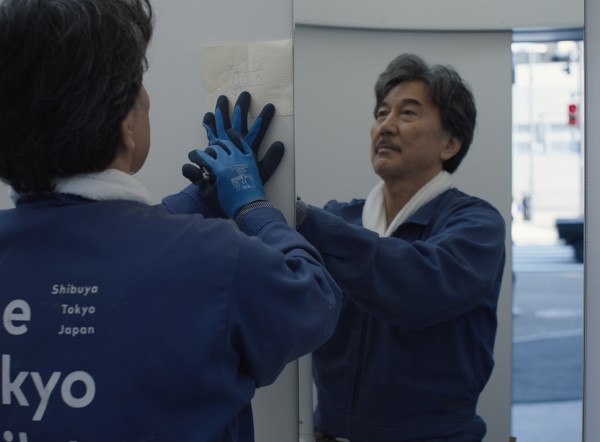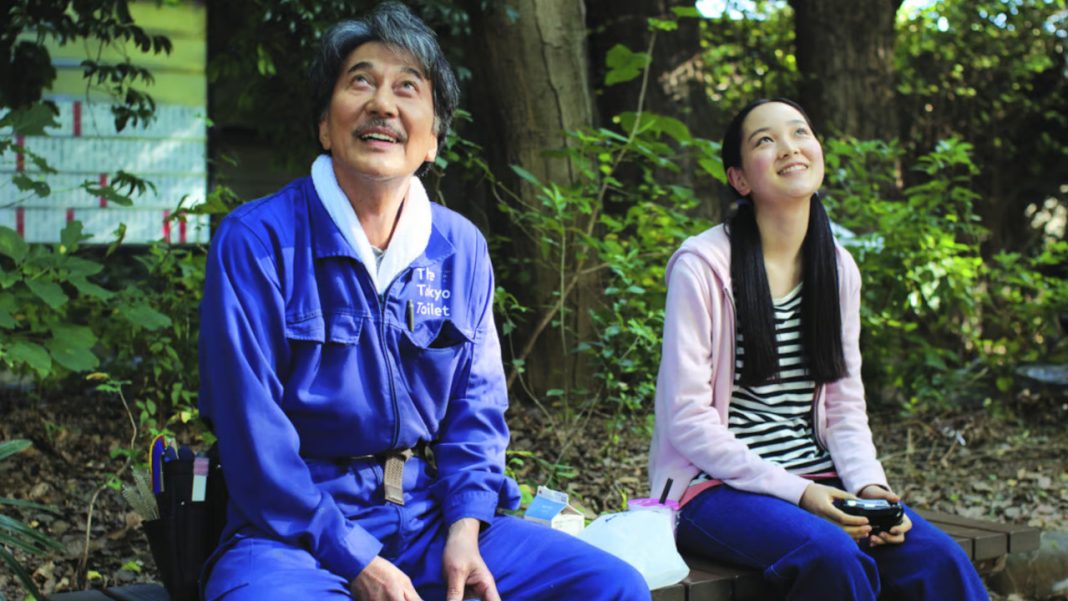This Japanese drama, subtitled in English, tells the story of a toilet cleaner in Tokyo, and tracks his life through a 2-week period in which his daily activities are shared with viewers in detail.
PERFECT DAYS. Starring: Koji Yakusho. Directed by Wim Wenders. Rated PG (Mild coarse language and nudity). 125 min.
Review by Peter Sheehan, Associate of Jesuit media Australia
The film is taken from a script written by Kim Wenders in collaboration with Takuma Takasaki. The film was awarded the Prize of the Ecumenical Jury at the 2023 Cannes Film Festival, and won Cannes’ Best Actor Award for Koji Yakusho. In the film, he plays a middle-age man, Hirayama, who works as a toilet cleaner in the fashionable district of Shibuya in Tokyo, Japan. He leads a simple life, and is happy with his solitary existence – he takes pleasure in his books; he takes pride in his gardening; he enjoys music greatly; and he loves photographing nature and the world around him.

Our understanding of Hirayama’s character comes from a series of naturally occurring encounters that he experiences – including encounters with his workmates, his niece, his sister, a sexy co-worker, a lonely person eating in a park, and other people. The interactions occur in short story form, and the film ends by showing Hirayama starting his ordered daily routine yet once again.
The movie offers intimate slices of life, and Koji Yakusho delivers a remarkable performance as Hirayama. Events are repeated, but each reoccurrence shows subtle deviations that convey messages that communicate fresh insights into character. Hirayama is a person who looks for, and finds peace in simple acts. The film is a study of his life in Tokyo that is celebratory. He is a man who knows himself; he is entirely comfortable with his identity; and he exists apart from the turbulence and complexity that busy cities like Tokyo routinely deliver. When dramatic elements of Hirayama’s life are revealed to signal new perceptions, we see glimpses of shared loneliness, and missed opportunities such as signs of fractured family relationships, and a possible romantic interest. Kim Wenders guides his film by highlighting the beauty of life without the assistance of verbal narrative. Hirayama welcomes life almost without words; and Yakusho’s facial expressions supply what’s needed to make the dramatic point. Hirayama’s fractured past is revealed through supportive interactions he has with his niece, and he helps a stranger by engaging in shadow-boxing with him, after being told that the stranger is dying of cancer. But through the sad moments, some of which stress Hirayama obviously, happiness survives. The movie achieves its impact by celebrating the life of someone who has decided to live his life another way.


This is a film destined to be nothing like what has been seen before, but its apparent simplicity is deceptive. The movie is basically an ode to looking for, and finding pleasure in simple things, and Wim Wenders, as Director, guides it as a master-craftsman. For Hirayama, contentment is something not assigned to him by anyone. The film powerfully teaches us that the true richness of happiness and contentment comes from within.
Peter W, Sheehan is an Associate of Jesuit media


